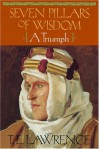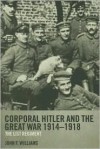Currently reading
LOVE & WAR DANS LA FRANCE

This novel has a certain Downton Abbeyesque quality to it, beginning in July 1914 as Europe stood poised on the precipice of no-return, pending the resolution of "that damn fool thing in the Balkans." Lady Elizabeth ("Lilly"), the youngest daughter of a wealthy and influential family boasting of an earl as head of the manor, was in the midst of a social gathering, complete with orchestra, at her parents' home in Belgrave Square, London, where she espied an old friend of her brother Edward's from Oxford. She had last seen him 7 years earlier, when she was a freckled-faced 13-year old. Edward had brought Robert Fraser ("Robbie") home to meet the family during Easter weekend. Lilly's parents had not found favor with him. They were "appalled that Edward would choose to associate with the son of a Glaswegian dustman. But Edward had insisted on bringing his friend to Cumbermere Hall for the holiday, and what her brother wanted he very nearly always got."
To Lilly, Robbie, who had been working in London as a surgeon for the last 6 years, cut a striking figure. "He was as fair as ever, his hair the color of honey, and his eyes were the same bright blue of her memories." Formal attire suited Robbie well. She extended a hand in greeting him. At first, he didn't recognize Lilly straightaway. But soon enough, the dim light of recognition lit up in Robbie's mind after Lilly told him that she was Edward's youngest sister. Not wanting to be too conspicuous and to escape her mother's scrutiny and determination to use this event for a proper matchmaking for her, Lilly guided Robbie to a quiet corner of a drawing room where they could talk without being observed. They had a pleasant, engaging conversation in which Robbie told Lilly about his work in the hospital. She in turn, confided in Robbie about her desire to lead a more independent life for herself, travel the world, pursue a career, and marry for love. Robbie seemed different than most men she knew, for he listened patiently and sympathetically to her. Not in a patronizing way as most men of her class would in indulging themselves in what they regarded as the foolish whims of a woman. After all, a woman's lot was to marry well and have a family.
Alas, Lilly and Robbie were found out by her mother, who had a prospective fiance in tow, a rather boorish fellow named Fitzallen-Carr. Lilly was thus led away to the dance, while her mother had it out with Robbie, who soon left.
A short time later, war erupts in Europe and men rush off to join the ranks. Edward, not to be outdone, is elevated to officer status and is soon training with a unit made up men and boys from various social strata he has known all his life. Robbie goes into the Royal Army Medical Corps (RAMC) as a surgeon and is posted within the first month of war to a hospital near Versailles. Lilly is restless, wanting to be useful to the war effort, but not knowing what she can do, for she lacks qualifications, having been taught at home by a governess. Through her brother Edward, she obtains Robbie's address, and thus begins a correspondence with him that lasts for 2 years. In that time, in a bid to be independent, Lilly secretly learns to drive, strip gears and fix motors, and provide maintenance for trucks. In the process, her correspondence with Robbie is found out by her mother. Lilly has a row with her parents - who cut her off completely - and goes off to live with her friend Charlotte in another part of the city. She eventually finds work in local transport and manages to meet Robbie in a small restaurant when he's able to take leave. This was in October 1916. Through fits and starts, a romance slowly begins to blossom, by degrees, between them. A real slow burner, for both outwardly assert themselves to each other as no more than the best of friends. (Deep down inside, the attraction grows between them.)
Over Christmas, Lilly and Charlotte have lunch with Edward, who is on leave, at a swanky London restaurant. Lilly tells Edward of her desire to want to be more directly involved in the war effort. This is when he discloses to Lilly that, in the New Year, the Army would be establishing a Woman's Army Auxiliary Corps (WAACs) in which women --- once properly trained --- would drive and maintain ambulance trucks near the Front, assisting in bringing back wounded soldiers to casualty clearing stations (CCS) - like the one where Robbie was now serving - where they could receive prompt, life-saving treatment.
By the following spring, Lilly manages to gain acceptance into the WAACs, receives 3 months of training in the UK, and in July 1917, in response to an urgent need for ambulance drivers near the Front, volunteers with a number of her friends for duty in France. Here is where the suspense value, hints, intimations and stirrings of romance in the novel blaze forth. I won't say anything more because that would be throwing in a lot of spoilers. But I will say that "SOMEWHERE IN FRANCE" was a novel I could not put aside til I read it in full. Not only does it give the reader a tangible feel of what it was like to maintain and drive ambulance trucks to and from the Front, sometimes risking destruction from distant shell fire, it also gave me a deep appreciation for the work carried out under the most dire of conditions for the surgeons and nurses who sought to patch up and save as many of the wounded as they could. This novel is A WINNER. The first in a trilogy.
 1
1













